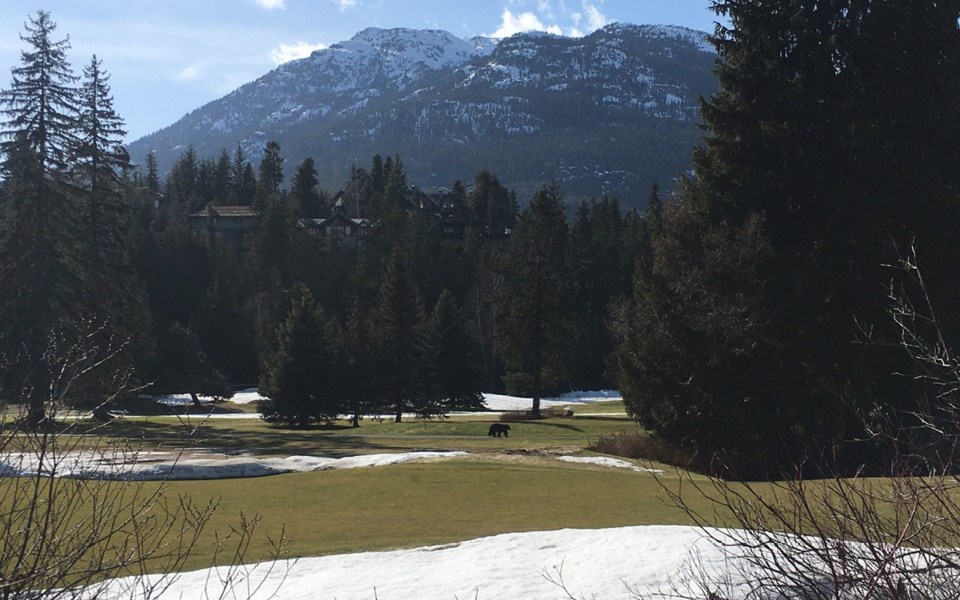As Whistlerites continue to self-isolate at home, nature carries on—including for Whistler's resident bear population.
Bear activity is starting to ramp up slowly in the region, according to Sgt. Simon Gravel with the Conservation Officer Service (COS).
"We do see a bit of a bear activity in Squamish, on the North Shore, but it's really just the beginning, and it's consistent with past years, where bears are starting to be active slowly," Gravel said.
"Obviously it's all weather dependent, but yeah, it's consistent with past years."
With so many confined to their homes due to COVID-19, now is a good time to secure attractants and brush up on education, Gravel said.
"The situation can be good for the bears," he said.
"I think if everyone takes a little bit more time to go above and beyond to secure attractants around their house, [then] they're not going to be surprised by the bears, and everyone will benefit [from] it."
Residents should take the time to manage attractants such as garbage, fruit trees, composts, gardens and chickens, Gravel said, adding that there are good resources at wildsafebc.com.
"Perhaps it could be a fun time with the kids right now to look at this bear aware and bear-smart behaviour, and making sure the house is ready for spring, and not attracting any bears," he said.
Like it has for so many others, COVID-19 is changing day-to-day operations for B.C.'s conservation officers—mostly for the fact that many more people seem to be getting outdoors on weekdays.
Call volumes are similar to a normal year, but officers on mid-week patrols are encountering an "unusual amount of people," Gravel said.
"It seems like every day is kind of a weekend day right now, so that's a big change for us, but we're adapting to that, and we have a strong presence out there, and we make sure everyone's safe," he said, adding that the COS is taking extra precautions to keep staff safe and following the recommendations from public health officials.
It's not the COS' mandate to tell people to stay home, Gravel added.
"Our job is to make sure the resources are protected. There's a lot of laws involved, a lot of regulations for hunting and fishing, and we're there to make sure people are respecting that," he said.
"And obviously we're spreading the word, and we're definitely inviting people to follow the province's recommendations."
While COVID-19 quarantines have led to wildlife "reclaiming" urban spaces in some parts of the world, there haven't yet been reports of animals pushing boundaries in the Whistler area.
"As far as our zone right now, we don't really witness that. Time will tell, but it doesn't raise any concerns for me at this time," Gravel said.
"Here, there's not much boundary for wildlife. We have bears right in town, we have coyotes, we have wolf and cougars, and so that's not different for us."




